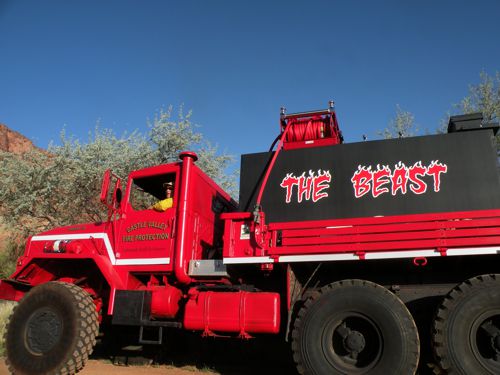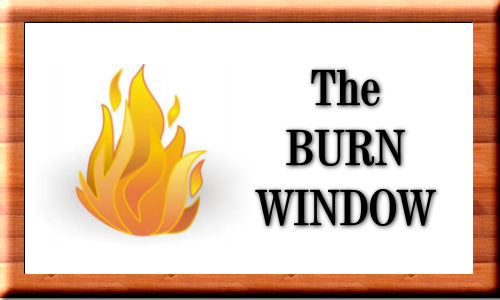CASTLE VALLEY FIRE DEPARTMENT:435-259-3655
An open Burn Window
in Castle Valley, Grand County and the
State of Utah is a period of time when it is permitted to burn yard
debris
like tree limbs, leaves, grass, tumbleweeds and other material that
is
collected from yard maintenance. It is also the time to burn irrigation
ditches, culverts and fence lines along side roads of grass and tumbleweeds
that grow during the season.

The
Burn Window usually closes around mid-April but the
State Department of Natural Resources might close the window earlier
in the spring if the weather becomes hot and too dangerous for open
burning.
The burn window is usually closed between April and
October when no open burning is allowed except with a permit from
the County Fire Warden. Sometimes during extra dangerous conditions
during the summer all open fires like campfires, smoking,
shooting
and similar activities are also banned.

Simple precautions
before igniting to ensure fewer escaped fires.
Notify your local fire department of your intention to burn.
If the brush file looks formidable ask someone in the Fire Department
take a look. They may recommend having a fire engine on the scene.
1. Clear
away vegetation to create firebreaks between burn areas
and adjacent fields, structures and trees.
2.
Never burn on windy days, check your local weather forecast
and plan to have fire out cold before afternoon winds develop.
3. Keep a charged hose and a shovel nearby. If a hose isn’t
possible,
fill 5-gallon water buckets.
4. Never leave the fire unattended.
Open burning is regulated on a state level by state law and rule.
Most counties and cities also have ordinances, so people wishing to
burn fields, ditches and waste piles should determine whether it is legal
to burn before lighting anything. Yard debris and slash piles are governed
by stricter county and city laws, so the public should consult local
ordinances. In addition, many areas are subject to Department of
Environmental Quality requirements. It is always the responsibility
of the person lighting and tending the fire to take the needed precautions
and prevent its escape. A permit or notification call does not relieve
a
person from liability if the fire gets away or damages someone
else’s property, so good judgment is advised.
Notification of the nearest fire department before burning is required
by law in ALL CASES. Failure to do so is a Class B misdemeanor.
Many costly and embarrassing experiences could be avoided with a simple
phone call. Preparation beforehand can make the difference between
success and disaster. In addition to preparations, slow and gradual lighting
of an area allows for greater control of a fire’s pace.

